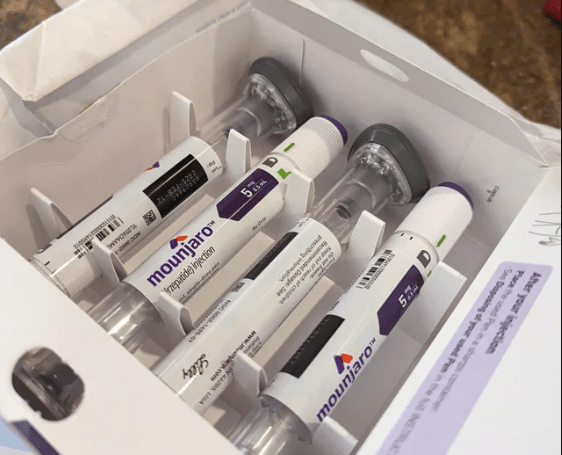Ozempic, Wegovy, and Mounjaro: The Rise of Weight Loss Injections in the UK – What You Need to Know
Weight loss injections like Ozempic and Mounjaro are becoming the go-to solution for those battling obesity. Initially developed for type 2 diabetes, these drugs have taken on a new identity, one that’s now sweeping through clinics, social media, and celebrity circles.
It’s more than just a trend. With obesity rising across the UK, the NHS has been under pressure to offer more effective treatments. But despite the demand, access remains patchy, and thousands are still waiting.
The evolution of weight loss jabs
Ozempic, known generically as semaglutide, first gained serious attention in 2022. In LA, it became the A-listers’ not-so-secret weapon. By the time it reached the UK, its weight-shedding powers were the stuff of legend.
Mounjaro, or tirzepatide, is a newer arrival. But it’s quickly catching up. These weekly injectable drugs work by mimicking hormones that control hunger and digestion. The result? People feel fuller for longer and eat less.
Their weight loss effects are hard to ignore. In trials, Mounjaro users lost up to 20% of their body weight. For Ozempic, it was around 15%.
But here’s the kicker, they only work while you’re on them. “We do not yet fully understand how GLP-1s work,” said Dr Yael Wolff Sagy, co-lead author of a major study linking these jabs to lower cancer risk.
“But this study adds to the growing evidence showing that weight loss alone cannot completely account for the metabolic, anti-cancer, and many other benefits that these medications provide.”
From diabetes solution to dieting revolution
Both Ozempic and Mounjaro were designed to help type 2 diabetics control blood sugar levels. They boost insulin when needed and prevent the liver from pumping out too much sugar.
That’s their original job. But their impact on appetite, and the bathroom scales soon caught the world’s attention.
Suddenly, the off-label use of these drugs as weight loss injections exploded. Especially in the US, where prescriptions for shedding pounds became as common as those for managing diabetes.
But not everyone can get them, and side effects are real
In the UK, Ozempic is available on prescription for diabetics. Wegovy – another semaglutide variant – and Mounjaro are available on the NHS only through specialist services.
The rollout, however, has been slow. Sky News research uncovered that only 8 of 42 NHS Integrated Care Boards in England had made Mounjaro available by early August. That’s left many eligible patients in limbo.
Back in October, reports of two-year waiting lists for Wegovy highlighted the frustration across the country. Delays continue to plague the system, and the limited availability is causing concern.
In some cases, people are turning to private providers. It’s estimated that 1.5 million people in the UK are using weight loss jabs, most of them paying out of pocket.
And while these drugs sound like miracle solutions, they come with caveats. Common side effects include nausea, vomiting, and diarrhoea. Some have experienced gallstones, kidney issues, or even pancreatitis.
There’s also the cosmetic side of sudden weight loss, often referred to as “Ozempic face.” It’s caused by the rapid reduction of fat, leading to sagging or aged-looking skin.
More seriously, there’s the rebound effect. People often regain the weight once they stop using the drug, whether by choice or due to supply shortages.
That’s why NICE guidelines now advise follow-up support for patients coming off the jabs. Structured advice, monitoring for at least a year, and ongoing behavioural support are key components.
Impact on diabetics and wider health implications
As the weight loss wave continues, diabetics are facing real challenges. Demand for these drugs is skyrocketing, and supply isn’t keeping up.
In 2024, shortages meant many diabetics were left chasing prescriptions across multiple pharmacies. The original users of these drugs were suddenly struggling to access what they needed.
But on the flip side, the broader health benefits of these injectables are coming into focus.
A study presented at the European Congress on Obesity found GLP-1 receptor agonists, like semaglutide and tirzepatide, may significantly reduce the risk of obesity-related cancers.
Professor Dror Dicker noted that the drugs’ “protective effects… likely arise from multiple mechanisms, including reducing inflammation.”
It’s promising. Especially as obesity is now the second leading cause of cancer in the UK, responsible for more than one in 20 cases.
Clearly, weight loss injections aren’t going away. They’ve transformed from diabetes meds into headline-grabbing slimming aids. But the NHS isn’t fully ready for the tidal wave of demand.
There’s potential here for weight loss, cancer prevention, and heart health. But that potential is only unlocked with access, support, and medical oversight.
For now, many in the UK are still waiting. And while the promise of rapid weight loss is alluring, experts continue to urge caution. These aren’t magic wands, they’re medical tools. And like any tool, they need to be used correctly.






